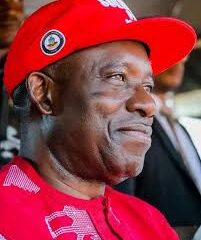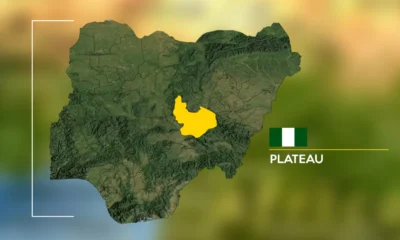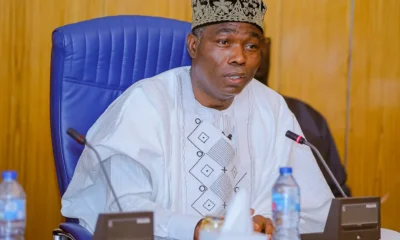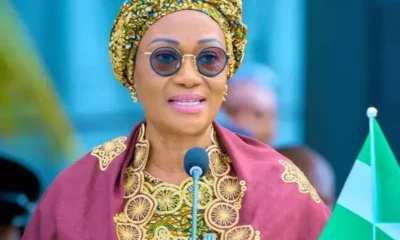Business
Nigeria’s fiscal deficit to widen with election spending – Fitch
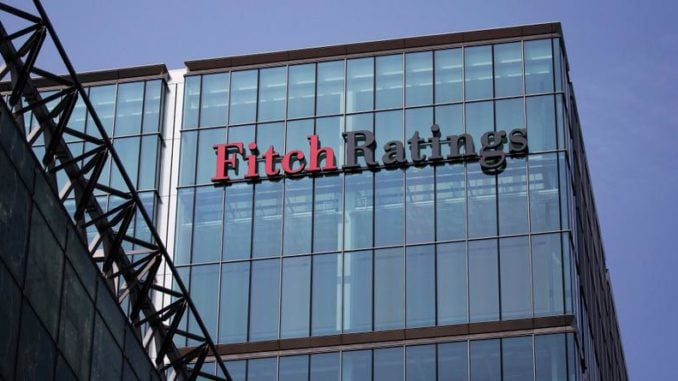
Global credit ratings agency Fitch Ratings has projected that Nigeria’s fiscal deficit will widen in 2025 and 2026 due to rising government expenditure, election-related spending, and growing debt-servicing obligations.
In its latest sovereign review obtained by Sunday PUNCH, Fitch affirmed Nigeria’s Long-Term Foreign-Currency Issuer Default Rating at ‘B’ with a Stable Outlook, citing ongoing economic reforms and improved foreign exchange liquidity.
However, the agency warned that persistent inflation, weak governance, and low revenue mobilisation continue to undermine Nigeria’s credit profile, constraining the fiscal space required for sustainable growth.
According to Fitch, the Federal Government’s budget deficit is expected to average 3.1 per cent of Gross Domestic Product between 2025 and 2026 as spending pressures mount ahead of the 2027 general elections.
It attributed this trend to higher wage bills, increased social and security expenditures, and rising debt-servicing costs.
Although government revenue is forecast to rise by 2.6 percentage points to 12.4 per cent of Gross Domestic Product by 2027, driven by new tax laws taking effect in January 2026, Fitch noted this figure remains well below the government’s target of 16.2 per cent and the ‘B’ sovereign median of 17.8 per cent.
“We expect general government revenue to rise by 2.6 percentage points to 12.4 per cent of Gross Domestic Product in 2027, supported by new tax laws effective January 1, 2026, aimed at reducing informality, curbing leakages, and improving tax collection.
“However, revenue will remain far below both the government’s target and the ‘B’ sovereign median, constrained by weak administrative capacity and enforcement challenges,” Fitch stated.
The agency blamed the revenue gap on structural challenges, including weak tax administration, enforcement lapses, and the high level of informality in the economy.
Fitch said its proprietary Sovereign Rating Model assigns Nigeria a score equivalent to a ‘B-’ rating, reflecting a balance between strengths, such as a large economy, a liquid domestic debt market, and significant oil and gas reserves and weaknesses, including high inflation, insecurity, and low non-oil revenue.
The agency commended the Central Bank of Nigeria for its foreign exchange reforms, which have improved market liquidity and stabilised the naira. It noted that foreign reserves rose to $42bn as of September 2025, above the median for comparable economies, but projected a moderate decline to $40 bn dollars by the end of 2026 as import demand increases.
Nigeria’s current account surplus expanded to 6.8 per cent of Gross Domestic Product in 2024 from 1.3 per cent in 2023, driven by stronger remittances and reduced refined fuel imports following higher local refining capacity.
Despite these gains, Fitch cautioned that data transparency and reporting quality remain major risks to policy credibility.
While inflation has eased, it remains among the highest for countries rated ‘B’. Fitch reported that inflation slowed to 20 per cent in August 2025 from an average of 33 per cent in 2024, and is projected to fall further to 17 per cent by 2027.
The Central Bank’s decision to cut the Monetary Policy Rate by 50 basis points to 27 per cent in September, the first reduction since 2020, was described as a cautious step to support growth while maintaining currency stability.
“We expect further rate cuts, although the Central Bank will proceed cautiously to sustain relative currency stability and strengthen policy transmission,” the agency said.
Nigeria’s total public debt is projected to decline slightly to 37 per cent of Gross Domestic Product by 2027 from 39 per cent in 2024, supported by strong nominal growth and continued access to domestic financing. However, interest payments are expected to consume about 43 per cent of government revenue in 2025, reflecting a tight fiscal position.
Fitch said while new tax measures, including digital tax collection and informal sector reforms, could boost revenue in the medium term, fiscal consolidation remains vulnerable to spending pressures and weak implementation capacity.
The agency projected Nigeria’s economic growth at 4.2 per cent in 2025, up from 3.9 per cent in 2024, supported by exchange rate stability, higher oil output, and gradual recovery in non-oil sectors.
Oil production, excluding condensates, is expected to average 1.5 million barrels per day in 2025, up from 1.34 million barrels per day in 2024, though still below pre-pandemic levels due to infrastructure decay and persistent crude theft in the Niger Delta.
“The relative stability in the foreign exchange market will support non-oil activity, but high inflation and interest rates will constrain momentum,” Fitch observed.
The agency also noted that Nigeria’s banking sector is adapting to new capital requirements, with most lenders expected to exit the Central Bank’s regulatory forbearance regime by December 2025, as the apex bank phases out loan classification waivers.
Fitch maintained Nigeria’s Environmental, Social and Governance Relevance Score at ‘5’ for political stability, institutional quality, and control of corruption, citing persistent institutional weaknesses and uneven rule of law enforcement.
The outlook, according to Fitch, could improve if reforms that strengthen revenue mobilisation, reduce inflation, and support medium-term growth are sustained.
“Sustained progress in disinflation, stronger medium-term growth, and improved governance could support an upgrade,” the agency said.
“Conversely, renewed external liquidity stress or weakening fiscal discipline could trigger a downgrade.”
Nigeria’s credit rating has remained at the ‘B’ level since 2023, reflecting limited fiscal flexibility, weak public finance management, and a heavy debt-service burden.
The Bola Tinubu administration has implemented several macroeconomic reforms since mid-2023, including fuel subsidy removal, foreign exchange liberalisation, and new tax policies, aimed at boosting non-oil revenue.
However, these measures have intensified cost-of-living pressures and heightened social risks, prompting calls for stronger social safety nets and accelerated fiscal adjustment. (Punch)
-

 News16 hours ago
News16 hours agoSouth-East Breathes as Monday Sit-at-Home Officially Ends; Markets and Schools Reopen
-

 News16 hours ago
News16 hours agoGunmen Kill One, Abduct Imam, 7 Others In Plateau Community
-

 Politics16 hours ago
Politics16 hours ago‘Stop Funding Your Oppressors’ — Angry Youths Launch Boycott of Odogwu Bitters and Celebrity Channels Over Political Ties
-

 Politics16 hours ago
Politics16 hours ago‘Put E-Transmission in Law or Resign’ — SDP’s Adewole Adebayo Issues Ultimatum to Tinubu and NASS
-

 News16 hours ago
News16 hours agoI Never Thought Trump Would Recognise Me – Remi Tinubu
-

 News2 hours ago
News2 hours agoOyo princes launch court fight to preserve Alaafin’s supremacy
-

 Opinion17 hours ago
Opinion17 hours agoMarriage and money: When comparison turns love into pressure
-

 Metro2 hours ago
Metro2 hours agoAgain, US to deport 18 Nigerians on criminal list



